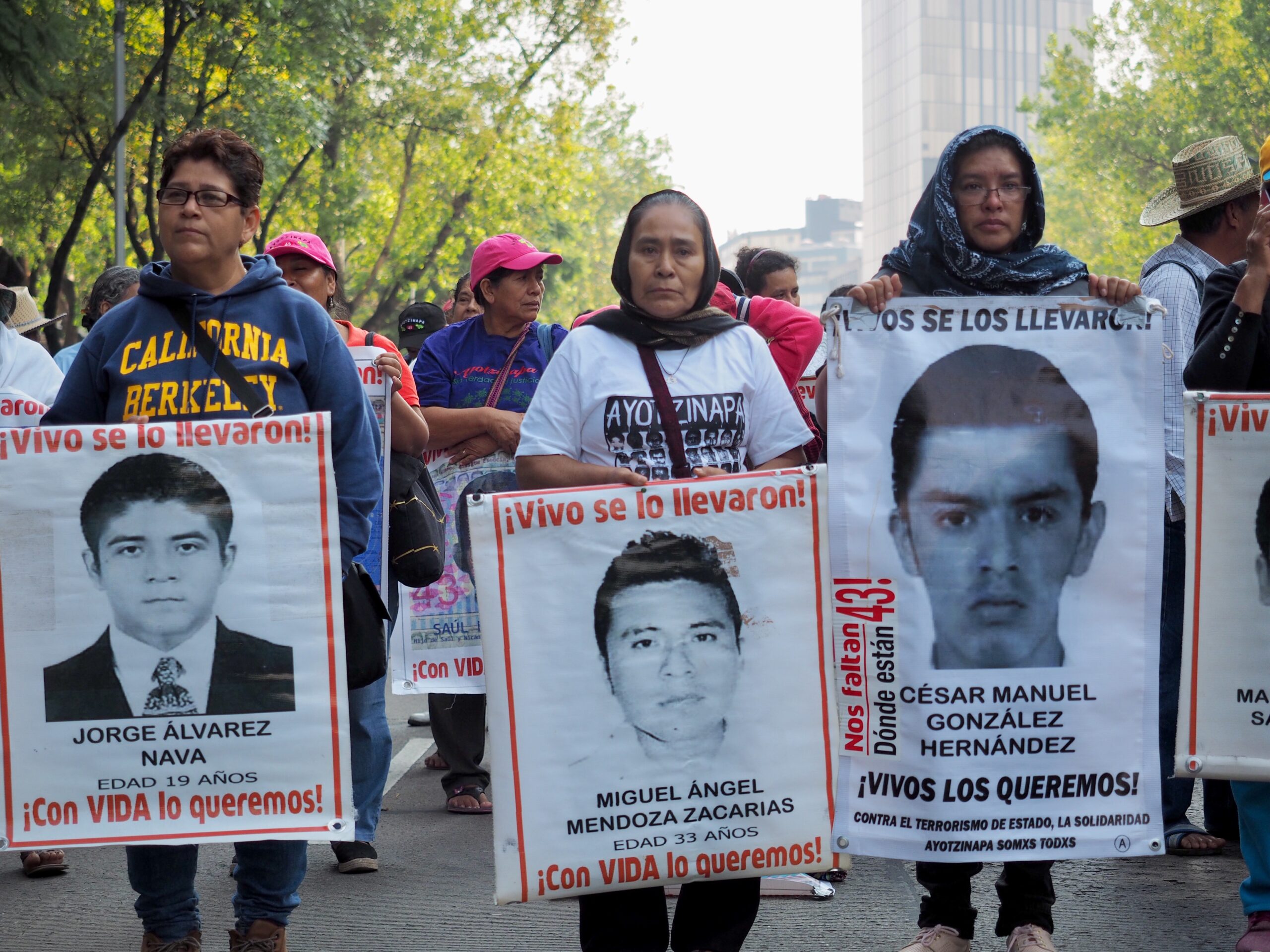Ayotzinapa Survivor Condemns False Flag Protest Aimed at Discrediting Morena
Mexico City, March 21, 2024 (Mexico Solidarity) – Mexican lawmaker Manuel Vázquez Arellano criticized efforts by political actors in the country to portray themselves as students from the Ayotzinapa teachers’ training college and called for an end to the “dirty campaign” being waged in the ongoing Mexican election.
Private media outlet TV Azteca disseminated a video Wednesday that purported to show a small group of students demonstrating outside the entrance to Ibero University in Mexico City’s tony Santa Fe neighborhood ahead of an event with Clara Brugada, the candidate for the leftist Morena party to head the Mexico City government.
The masked demonstrators chanted slogans critical of Brugada and held up defaced campaign posters. Brugada was asked about the protest during the event billed as a dialogue with students from the university.
Journalists and political analysts questioned the veracity of the video’s claim that the demonstrators were students from Ayotzinapa, while several elements of the protest raised suspicion.
Ahead of the protest, the demonstrators were filmed arriving in expensive private vehicles, those participating did not fit the profile of the average Ayotzinapa student, the type of protest did not conform to the typical manner of demonstrations by students from Mexico’s teachers’ training colleges, and the demonstrators did not seem to know the political chants commonly expressed at protests.
“These individuals clearly are not from the Ayotzinapa teachers’ training college,” said Vázquez Arellano in a video shared on social media.
Vázquez Arellano, also known as Omar García, a former student of the Ayotzinapa teachers’ training college is a survivor of the attack on September 26, 2014 that saw 43 students forcibly disappeared and currently sits as a representative for the ruling Morena party in the lower house of the Mexican Congress.
The Facebook page of the Ayotzinapa “propaganda and press commission” made a post denying any association with the protest and reiterated that it is a nonpartisan group.
“We distance ourselves from actions carried out by third parties on behalf of our institution,” read the post on social media.
The false flag protest took place during a moment of increased tension between the government of President Andrés Manuel López Obrador and the movement calling for the return of the 43 forcibly disappeared students. AMLO, as the president is commonly known, was elected on a promise to secure justice in the case of the 43 students that rattled Mexican society and drew millions onto the streets following their disappearance.
The Mexican president set up the Ayotzinapa Truth Commission early in his term and tasked the government to work with the parents of the missing students to ascertain what happened to their children and hold those responsible accountable. To date the Commission has submitted two reports and officially declared the forced disappearance to have been a “state crime”.
The Federal Attorney General’s Office (FGR) has obtained dozens of arrest warrants in the case, both military officials and civilians, including former Attorney General Jesús Murillo Karam, widely seen as the architect of the attempted cover-up. However, the commission has thus far been unsuccessful in determining the whereabouts of the missing students and the government has identified the remains of only three of the 43 students. The parents of the missing students have also accused the country’s Armed Forces of impeding the investigation.
A recent protest at the National Palace saw demonstrators commandeer a nearby pick-up truck and break down a door into the building housing the executive headquarters.
President López Obrador has also been critical of the legal advisors and human rights NGOs that are accompanying the parents, and has requested a private meeting with the parents without the aforementioned parties. AMLO has also warned that there are political actors attempting to use the case of the missing students for political ends.
“What I do not want is for any of these regrettable situations to be used ahead of the election,” said López Obrador. “This does not mean that we are not working, we are working, every day … We are looking for the students, intensely, like never before, and we have made progress in the search.”
López Obrador is prohibited from running for re-election by the Mexican constitution, with Morena having tapped Claudia Sheinbaum, the former governor of Mexico City, as its candidate for the presidency. Sheinbaum holds a commanding lead in polls, putting her 25 to 30 points ahead of her rival Xóchitl Gálvez, running on behalf of a coalition of opposition parties.
Morena candidates and party leadership have raised alarm bells over the opposition’s negative campaign strategy, warning that their strategists have signaled they intend to use what they call “dirty” tactics in their efforts to close the gap. Brugada is facing a slightly more competitive race to lead the Mexico City government against opposition candidate Santiago Taboada but nonetheless commands a two-digit lead.

